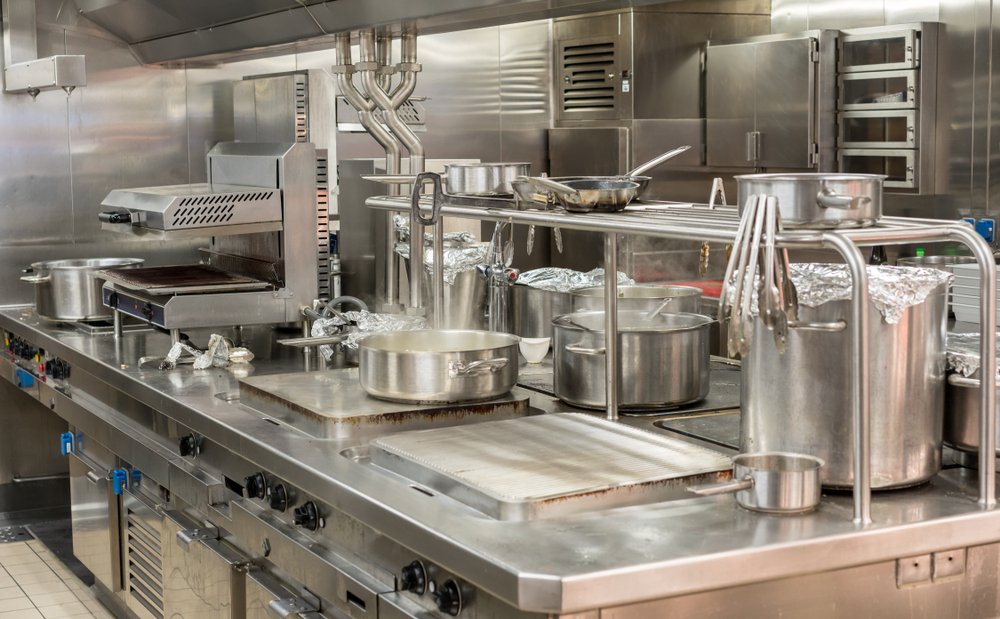As a restaurant owner or manager, one of the most significant decisions you will make is choosing the right commercial kitchen equipment. The quality, efficiency, and durability of your kitchen appliances are critical factors in the success of your foodservice business. In this comprehensive guide, we will explore the key aspects of selecting the best commercial kitchen equipment brands and suppliers, ensuring that you make informed decisions that will benefit your business in the long run.
Understanding Your Kitchen Equipment Needs
Before diving into the world of commercial kitchen equipment, it is crucial to understand your specific needs. Consider the following factors when determining what appliances and supplies are necessary for your operation:
– Menu: Your menu will dictate the types of equipment needed for food preparation, cooking, and storage. Consider the cooking methods, ingredients, and portion sizes required for your dishes.
– Kitchen layout: The size and layout of your kitchen will impact the type and size of equipment you can accommodate. Measure your space and consider how the equipment will fit and function within your kitchen.
– Capacity: Consider the volume of food you will be preparing and serving daily. This will help determine the size and capacity of equipment needed to meet your demands.
– Energy efficiency: Energy-efficient appliances can save you money on utility bills and reduce your environmental impact. Look for ENERGY STAR-rated equipment or other energy-saving features.
Evaluating Commercial Kitchen Equipment Brands
Not all commercial kitchen equipment brands are created equal. Some brands are known for their durability and performance, while others may have a reputation for frequent breakdowns and poor customer service. To find the best brands for your needs, consider the following factors:
– Reputation: Research the reputation of various brands by reading reviews, testimonials, and industry publications. Look for brands that are consistently praised for their quality, reliability, and customer support.
– Certifications: Ensure that the equipment you choose meets industry standards and certifications, such as NSF, UL, or ETL. These certifications indicate that the product has been tested for safety and performance.
– Innovation: Some brands lead the industry in terms of innovation and technology. Look for brands that offer unique features or cutting-edge technology that can improve your kitchen’s efficiency and productivity.
Researching Reliable Suppliers
Once you have identified the brands that meet your needs, it’s time to find a reliable supplier. Here are some factors to consider when selecting a commercial kitchen equipment supplier:
– Experience: Choose a supplier with a proven track record in the industry. An experienced supplier will have a deep understanding of the products and can offer valuable advice and support.
– Inventory: Look for a supplier that offers a wide range of products from various brands. This will give you more options to choose from and help you find the best equipment for your needs.
– Customer service: A good supplier should offer excellent customer service, including prompt responses to inquiries, helpful advice, and efficient order processing.
– Shipping and delivery: Consider the supplier’s shipping and delivery policies. Look for suppliers that offer fast shipping, flexible delivery options, and reasonable shipping fees.

Comparing Prices and Financing Options
Commercial kitchen equipment can be a significant investment, so it’s essential to compare prices and financing options before making a purchase. Here are some tips for finding the best deals on restaurant equipment:
– Shop around: Compare prices from multiple suppliers to ensure you’re getting the best deal. Keep in mind that the lowest price may not always be the best value, as factors such as warranty, support services, and shipping fees can impact the overall cost.
– Negotiate: Don’t be afraid to negotiate with suppliers for better prices or additional services, such as free shipping or extended warranties.
– Financing: Many suppliers offer financing options to help spread the cost of equipment purchases over time. Be sure to research and compare financing terms and interest rates to find the best option for your business.
Considering Used or Refurbished Equipment
Purchasing used or refurbished commercial kitchen equipment can be a cost-effective way to outfit your kitchen. However, there are some risks associated with buying used equipment, so it’s essential to do your due diligence. Consider the following factors when evaluating used or refurbished equipment:
– Age and condition: Assess the age and condition of the equipment, as older or heavily used equipment may be more prone to breakdowns and require costly repairs.
– Warranty: Look for used equipment that comes with a warranty or guarantee, as this can provide peace of mind and protect your investment.
– Supplier reputation: Purchase used equipment from a reputable supplier with a history of selling high-quality, reliable products.
Evaluating Warranty and Support Services
A good warranty and support services are essential when investing in commercial kitchen equipment. Here are some factors to consider when evaluating warranty and support services:
– Warranty coverage: Look for equipment that comes with a comprehensive warranty that covers parts and labor for an extended period.
– Support services: A good supplier should offer ongoing support services, such as troubleshooting, maintenance, and repair services. This can help ensure that your equipment remains in optimal working condition and minimize downtime.
– Training: Some suppliers offer training and educational resources to help you and your staff get the most out of your equipment. This can be a valuable addition to your purchase.
Conclusion
Investing in the right commercial kitchen equipment is critical to the success of your food service business. By understanding your needs, evaluating brands and suppliers, comparing prices and financing options, and considering used or refurbished equipment, you can make informed decisions that will benefit your business in the long run. Don’t forget to evaluate warranty and support services to ensure that your investment is protected and that you have access to ongoing support and resources. With the right equipment in place, you’ll be well on your way to creating a successful and efficient commercial kitchen.
